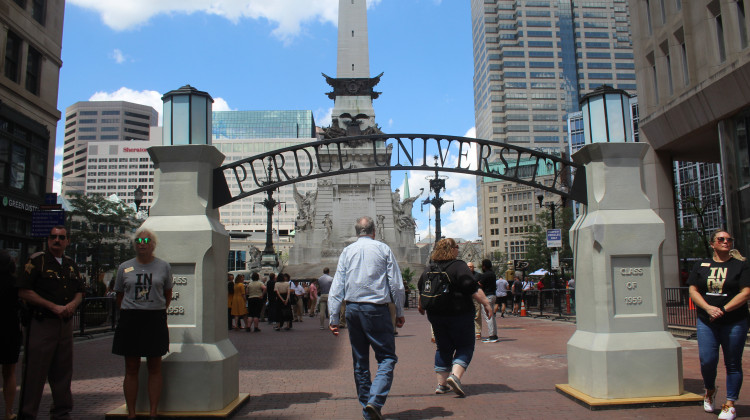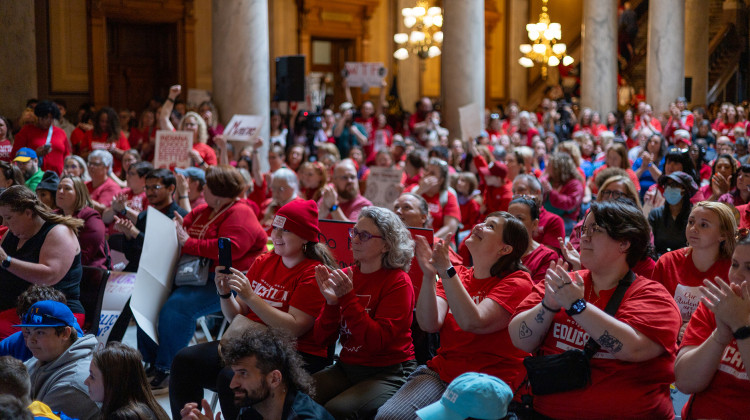
An executive order issued by President Donald Trump on Friday halts entry to the U.S. from seven predominantly Muslim countries, and has left Indiana colleges and universities scrambling to adjust.
IPBS-RJCAn executive order issued by President Donald Trump on Friday halts entry to the U.S. from seven predominantly Muslim countries, and has left Indiana colleges and universities scrambling to adjust.
“The sweeping, indiscriminate and abrupt character of President Trump’s recent Executive Order halts the work of valued students and colleagues,” said John Jenkins, president of Notre Dame, in a statement. “We respectfully urge the president to rescind this order.”
Jenkins is the head of one of a many of colleges and universities across the Hoosier state who have decried the executive order.
The order freezes entry to the U.S. for people from Iran, Iraq, Libya, Somalia, Sudan and Yemen for 90 days. It also indefinitely freezes entry into the U.S. for Syrian refugees.
International students and faculty across the state have reported changing or cancelling travel plans, for fear of not being able to return to the country.
Institutions of higher education are urging them do as such. Institutions including Notre Dame, the Indiana University system, Purdue University and Earlham College have urged students from Iran, Iraq, Libya, Somalia, Sudan, Syria and Yemen to cancel travel plans outside of the U.S.
“The President’s order related to immigration is a bad idea, poorly implemented, and I hope that he will promptly revoke and rethink it,” said Mitch Daniels, president of Purdue University, in a statement. “If the idea is to strengthen the protection of Americans against terrorism, there are many far better ways to achieve it.”
Around 100 of Purdue’s 40,000 students are from the countries named in this week’s executive order from the White House and hold non-immigrant visas. Another 10 faculty are citizens of those countries.
Michael McRobbie, president of Indiana University, also denounced the order. In a statement, he urged affected students at 10 IU campuses to cancel travel plans.
“We urge the administration to end this executive order, as quickly as possible,” McRobbie said. “At the same time, we remain committed to doing all that we can within the bounds of the law to vigorously protect and support IU students, faculty and staff.”
McRobbie says IU recognizes the “critical importance” of a strong and effective visa process to protecting our national security and will support collaborative efforts to ensure the process “prevents entry from anyone who wishes to harm Americans.”
Jen Pearl, in Bloomington, organized a campaign to sign postcards and banners, telling Muslim and international university students that they are welcome.
“I feel really good about it,” Pearl said. “People had messages of support for them and we just hope this is momentum to move forward here.”
The universities plan to hold information sessions for affected students this week.
 DONATE
DONATE





 View More Articles
View More Articles



 Support WFYI. We can't do it without you.
Support WFYI. We can't do it without you.